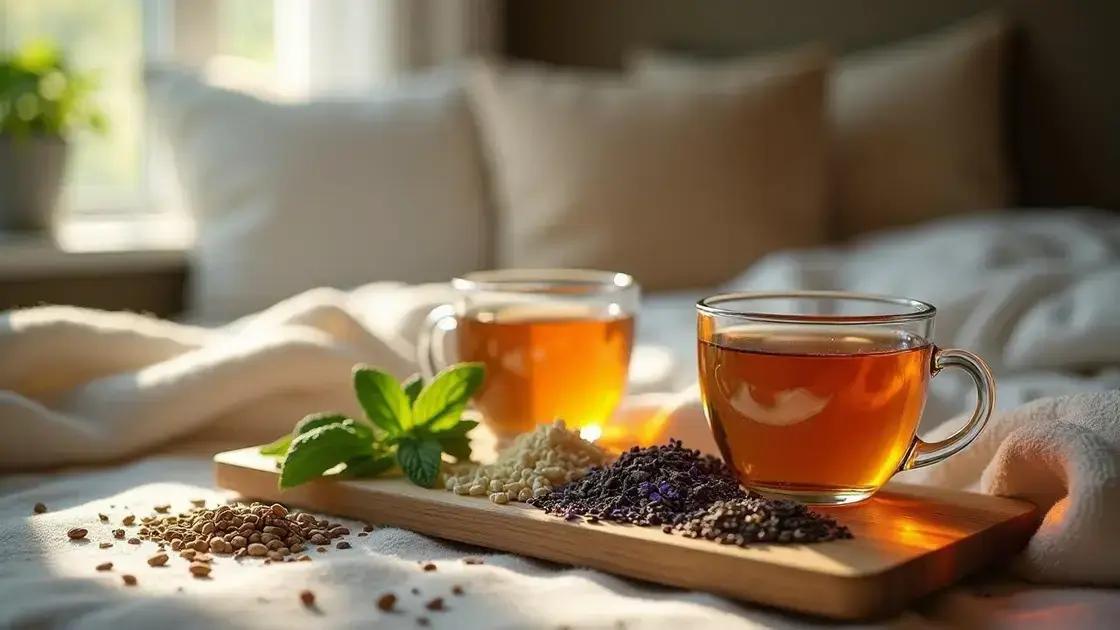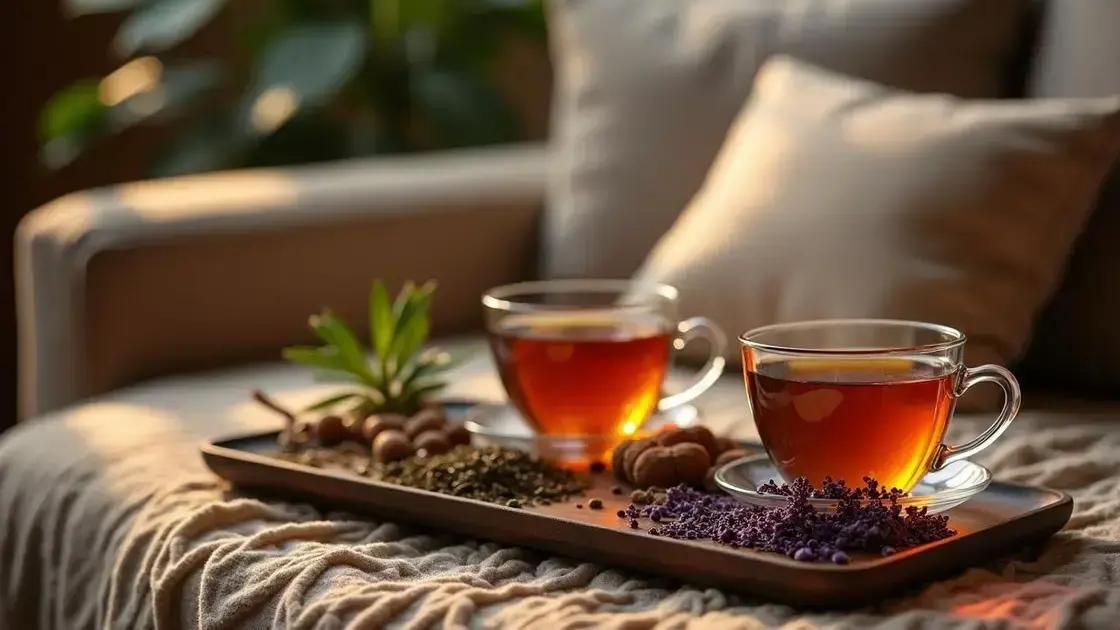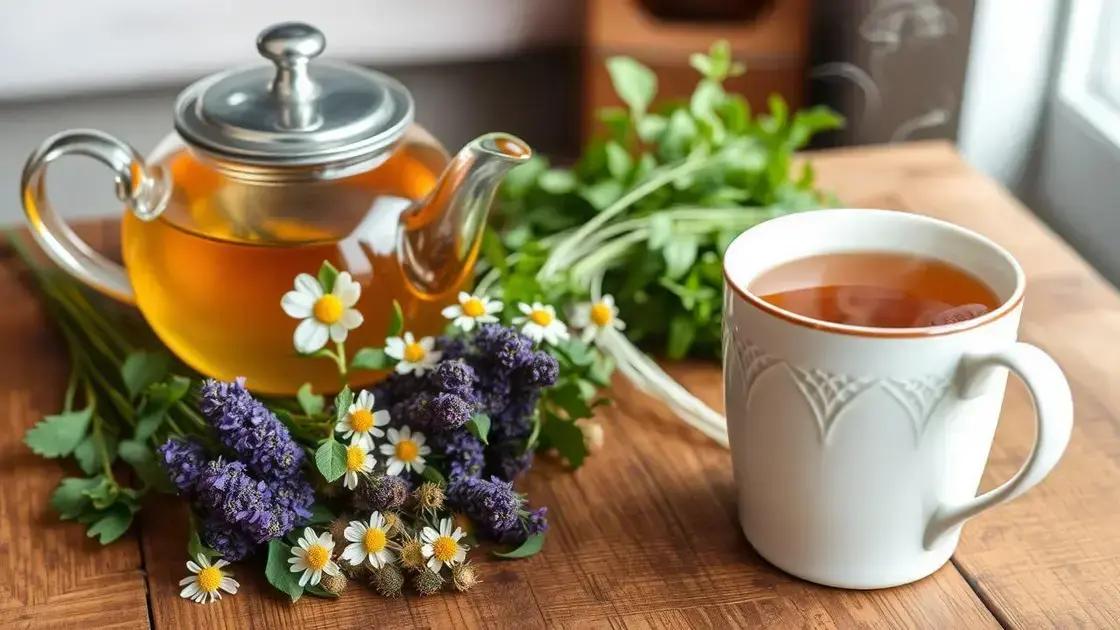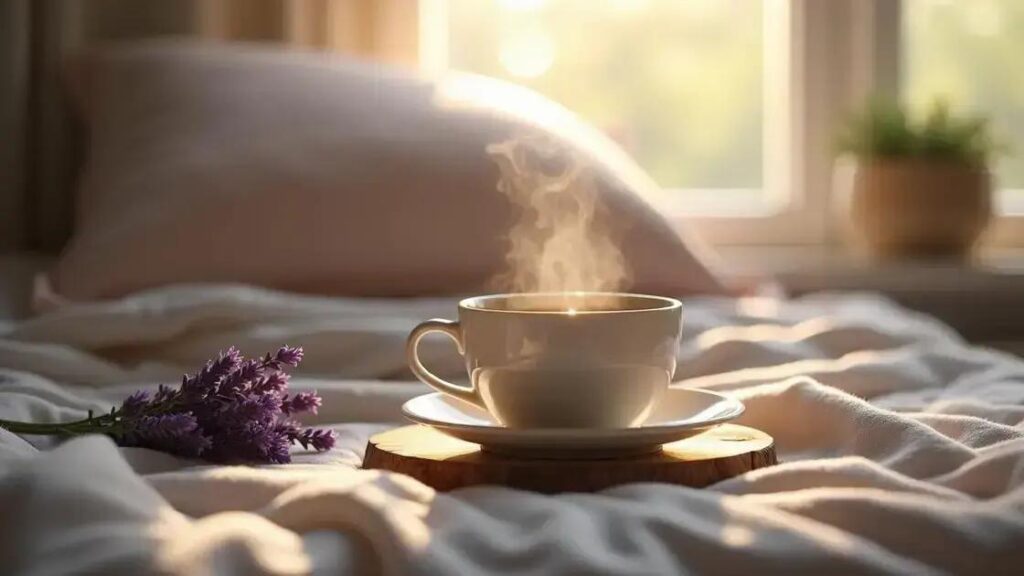Herbal teas, such as chamomile, lavender, and valerian root, play a vital role in supporting relaxation and sleep by promoting calming effects. Incorporating these teas into your evening routine can enhance your winding down process, making it easier to experience restful sleep and improved overall well-being.
In today’s fast-paced world, finding ways to unwind is crucial for overall well-being. The role of herbal teas in supporting relaxation and sleep is increasingly recognized by many. These natural brews not only taste delightful but also offer various calming benefits. In this article, we will delve into the best herbal teas for sleep, how to brew them perfectly, and ways to incorporate them into your nightly routine.
Understanding Herbal Teas and Their Benefits

Herbal teas have been enjoyed for centuries not only for their flavors but also for their various health benefits. These natural beverages are made from the leaves, flowers, seeds, or roots of plants, and they are caffeine-free, making them an excellent choice for those looking to relax and unwind.
One of the main advantages of herbal teas is their calming properties. Certain herbs, like chamomile and valerian root, are renowned for their ability to promote sleep and relaxation. They work by aiding the body’s natural processes, helping to reduce anxiety and stress.
Benefits of Herbal Teas
Drinking herbal teas as part of your nightly routine can contribute positively to your health:
- Stress Relief: Many herbal teas contain anti-anxiety properties that help to calm the mind.
- Improved Sleep Quality: Some herbal varieties, such as lavender and passionflower, can enhance sleep quality, making it easier to fall and stay asleep.
- Digestive Aid: Herbal teas like peppermint and ginger can soothe the digestive system, which can help if you experience discomfort that interferes with sleep.
- Hydration: Drinking herbal tea is a flavorful way to stay hydrated before bed, which is essential for overall health.
Incorporating herbal teas into your evening routine can transform your sleep experience. As they are free of caffeine, these teas are perfect for a relaxing way to end a long day. Their aromas and flavors can also create a soothing atmosphere that promotes leisure.
Top Herbal Teas for Sleep and Relaxation

If you’re looking for the best herbal teas to promote sleep and relaxation, you’ve come to the right place. Here are some top choices that can help you wind down at the end of the day:
Chamomile Tea
Chamomile tea is one of the most popular herbal choices for relaxation. It has mild sedative effects that can help reduce anxiety and improve sleep quality.
Lavender Tea
Lavender tea is made from the flowers of the lavender plant. Its soothing aroma is known to calm the mind, making it easier to relax and fall asleep.
Valerian Root Tea
Valerian root is another powerful herb that has been used for centuries to promote sleep. It can help reduce the time it takes to fall asleep and improve overall sleep quality.
Lemon Balm Tea
Lemon balm, a member of the mint family, offers gentle sedative effects. It can help relieve stress and improve mood, making it easier to relax.
Passionflower Tea
Passionflower tea is a calming herbal tea that is known for its ability to reduce insomnia and anxiety. It works well when you’re feeling overwhelmed and need a restful night.
These herbal teas not only taste great but also offer the perfect combination of relaxation and sleep support. Enjoy them before bedtime for the best results!
How to Brew the Perfect Herbal Tea

Brewing the perfect herbal tea requires attention to detail and technique. Here are the steps to ensure you create a fragrant and soothing cup, adding to the role of herbal teas in supporting relaxation and sleep.
Step 1: Choose Your Herbs
Start by selecting your preferred herbal tea. Options like chamomile, lavender, and valerian root are excellent for promoting relaxation. Fresh herbs can provide a stronger flavor than dried ones.
Step 2: Measure the Right Amount
Use about 1-2 teaspoons of dried herbs or 2-3 teaspoons of fresh herbs for each cup of tea. This amount can be adjusted based on your taste.
Step 3: Boil Water
Bring fresh water to a rolling boil. However, avoid using boiling water for delicate herbs like chamomile; let the water cool for a few minutes after boiling.
Step 4: Steep the Herbs
Pour the hot water over the herbs in a teapot or cup. Allow the mixture to steep for about 5-10 minutes. The longer you steep, the stronger the flavor and scent will be.
Step 5: Strain and Enjoy
After steeping, strain the herbs from the tea. You can add honey, lemon, or other natural flavorings if you’d like. Sip your tea slowly to enjoy the calming effects.
By following these steps, you can brew the perfect herbal tea to support relaxation and enhance your evening routine, making it a delightful part of your bedtime ritual.
Incorporating Herbal Teas into Your Evening Routine

Incorporating herbal teas into your evening routine can greatly enhance relaxation and help you sleep better. Here are some easy ways to make herbal tea a soothing part of your night:
Set a Schedule
Choose a specific time each evening to enjoy your herbal tea. Having a routine signals to your body that it’s time to unwind. Many people find that sipping tea about an hour before bedtime is ideal.
Create a Cozy Atmosphere
Make your tea time special by creating a calm and comfortable setting. Dim the lights, light a candle, or play soft music. This can help you relax and focus on the enjoyment of the tea.
Pair with Relaxing Activities
Enhance your evening tea ritual by pairing it with calming activities. Reading a book, journaling, or practicing mindfulness can create a peaceful experience. This helps shift your mind away from daily stresses.
Experiment with Different Teas
Try different herbal teas to find your favorites. You might enjoy chamomile for its calming effects, or valerian root for better sleep. Keep a small selection on hand to mix things up.
Stay Mindful
As you sip your tea, take a moment to be mindful. Focus on the warmth of the cup, the aroma, and the flavors. This mindfulness practice can deepen your relaxation.
By regularly incorporating herbal teas into your evening routine, you create a soothing habit that can help support relaxation and improve sleep quality.
Embrace the Benefits of Herbal Teas for Relaxation and Sleep
Incorporating herbal teas into your daily routine offers a natural and enjoyable way to support relaxation and improve sleep quality. With a variety of herbal options available, such as chamomile and lavender, you can find the perfect blend to suit your tastes and needs.
By understanding how to brew the perfect cup and integrating tea time into your evening rituals, you create a soothing environment that promotes mindfulness and tranquility.
Ultimately, making herbal teas a regular part of your routine can enhance your overall well-being, helping you unwind after a long day and prepare for a restorative night of sleep.
FAQ – Frequently Asked Questions about Herbal Teas
What are the benefits of drinking herbal teas?
Herbal teas promote relaxation, reduce stress, and improve sleep quality. They contain natural compounds that can help calm the mind and body.
Which herbal teas are best for sleep?
Some of the best herbal teas for sleep include chamomile, lavender, valerian root, and lemon balm. These herbs are known for their calming properties.
How do I brew herbal tea properly?
To brew herbal tea, use 1-2 teaspoons of dried herbs, boil water, pour it over the herbs, and steep for 5-10 minutes. Strain and enjoy!
When is the best time to drink herbal tea?
It is best to drink herbal tea about an hour before bedtime. This allows your body to unwind and prepare for a restful night’s sleep.
Can I add anything to my herbal tea?
Yes, you can add honey, lemon, or other natural flavorings to enhance the taste of your herbal tea. Experiment to find your favorite combination.
Is it safe to drink herbal tea every night?
For most people, drinking herbal tea every night is safe. However, if you have specific health conditions or are pregnant, consult your doctor first.













